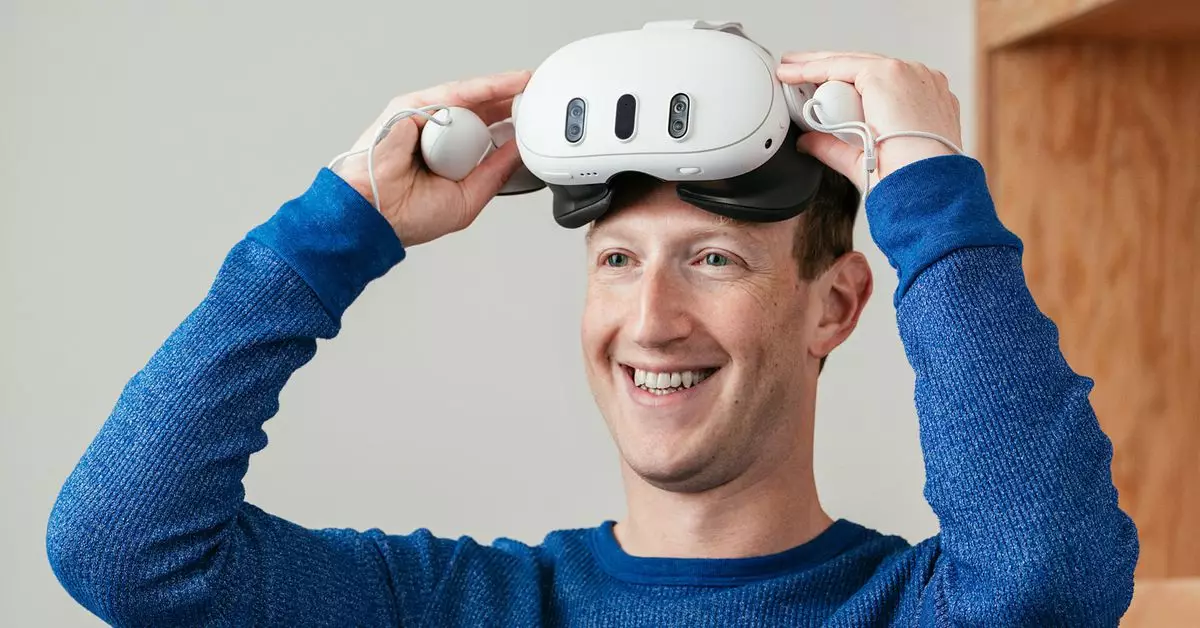In a recent Instagram video, Meta CEO Mark Zuckerberg shared his thoughts on the competition between Apple’s Vision Pro and his company’s latest Quest 3 headset. Zuckerberg confidently stated, “I think Quest is the better product, period.” As the CEO of Meta, formally known as Facebook, his opinion carries weight in the tech industry. However, it is essential to dive deeper into the features and factors that differentiate these two virtual reality headsets.
Zuckerberg highlights the weight difference between the Vision Pro and Quest 3, stating that the Quest 3 weighs 120 grams less. This weight reduction contributes to a more comfortable and prolonged wearing experience. While Apple aimed to create a sleek form factor with a fancy display, their headset sacrifices some comfort. The lighter Quest 3 prioritizes comfort without compromising on immersive visuals.
When it comes to motion tracking, the Quest 3 has an advantage over the Vision Pro. With its wireless design, the Quest 3 eliminates the constraints of a wired battery pack. This liberty allows users to move more freely and fully immerse themselves in virtual environments. Additionally, the Quest 3 offers a wider field of view, enhancing the overall immersive experience for users.
While Zuckerberg acknowledges the potential of eye tracking, he asserts that physical hand controllers and hand tracking are superior input options. The Quest 3 supports both methods, providing users with various ways to interact with the virtual world. Zuckerberg hints at the inclusion of eye tracking in future Meta headsets, showing a continuous commitment to advancing input technologies.
Zuckerberg confidently claims that the Quest offers a better “immersive” content library than Apple. At present, this statement holds true, as Meta’s extensive collection of virtual reality experiences surpasses that of Apple. However, it is important to note that Apple possesses significant advantages in terms of its established ecosystem and developer support. As Apple continues to invest in VR, it is likely that their content library will expand, leveling the playing field between these two competitors.
Zuckerberg concludes his analysis by mentioning the stark price difference between the Vision Pro and Quest 3, stating that the Quest 3 is “like seven times less expensive.” This significant price gap undoubtedly makes the Quest 3 more accessible to a broader range of consumers. However, it is essential to consider that the Vision Pro may offer a more premium experience for those willing to invest in the higher-end headset.
While Meta currently holds a significant market share and an apparent advantage over Apple, it is crucial to acknowledge that the VR headset war has only just begun. Apple possesses well-established hardware capabilities and a robust developer ecosystem. As a result, they have the potential to catch up and potentially surpass Meta’s offerings. Endurance and long-term commitment to innovation will be the determining factors in this ongoing battle between two tech giants.
Zuckerberg’s verdict on the Vision Pro and Quest 3 highlights the benefits of Meta’s current headset. However, it is important to remember that Apple’s strengths in hardware and developer support cannot be underestimated. As the headset wars continue, consumers can expect exciting advancements in technology and an ever-expanding range of immersive experiences.


Leave a Reply